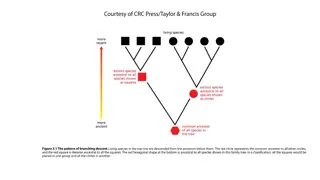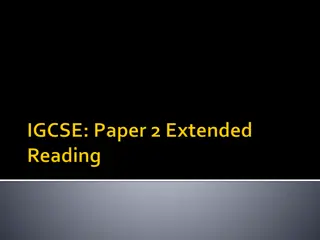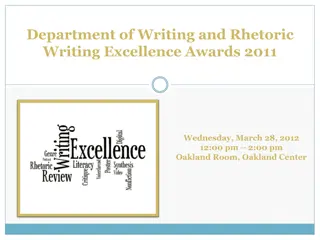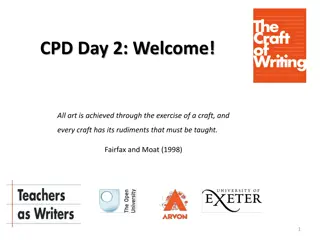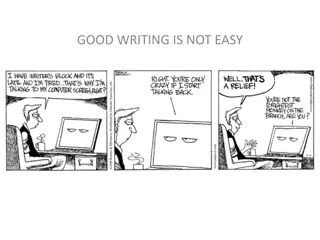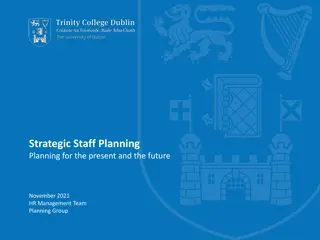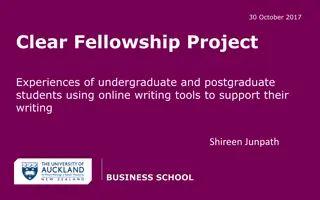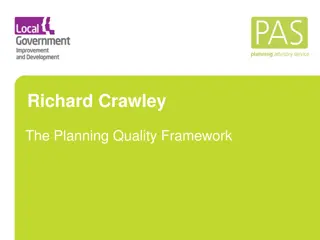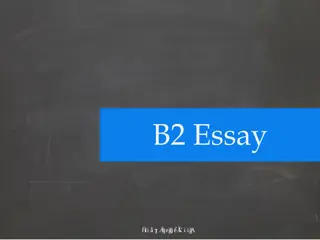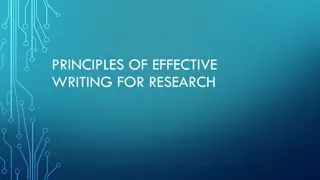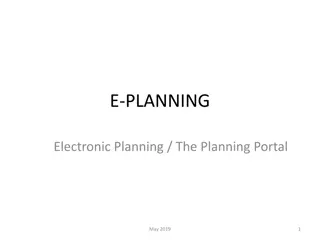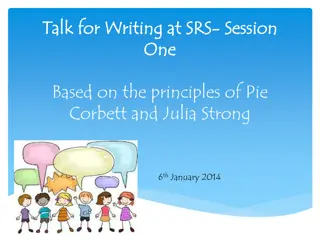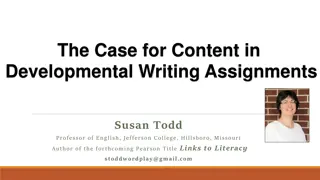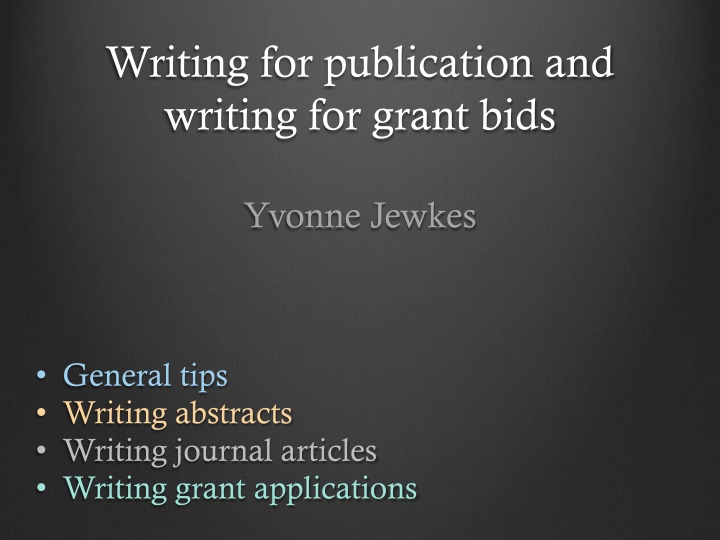
Tips for Effective Writing and Research Planning
Develop your writing skills and research strategies with expert advice on planning, starting, and maximizing your efforts. Learn how to create impactful abstracts for journal articles and enhance your grant applications.
Download Presentation

Please find below an Image/Link to download the presentation.
The content on the website is provided AS IS for your information and personal use only. It may not be sold, licensed, or shared on other websites without obtaining consent from the author. If you encounter any issues during the download, it is possible that the publisher has removed the file from their server.
You are allowed to download the files provided on this website for personal or commercial use, subject to the condition that they are used lawfully. All files are the property of their respective owners.
The content on the website is provided AS IS for your information and personal use only. It may not be sold, licensed, or shared on other websites without obtaining consent from the author.
E N D
Presentation Transcript
Writing for publication and writing for grant bids Yvonne Jewkes General tips Writing abstracts Writing journal articles Writing grant applications
General tips: Planning Choose something to research/write about that you are passionately interested in. Plan your research in chunks: this morning, today, this week, this month, next few months, this year, next three years. I don t tend to think more than a year ahead when it comes to research outcomes I want to achieve, but I find it helpful to write up at least a one-year research plan at the beginning of each year. Be strategic about every bit of research time available. Think about the best use of your time.
General tips: Making a start Use whatever research time you have to do something, however small the task. Make a start. Once you have an idea for a piece of writing, write down anything, however rough and however brief, even if it is just a provisional title and some notes about possible content. Organise your writing into different computer files: articles in progress, submitted articles, accepted articles, conference papers, book proposals, grant applications etc. If you hit a wall, leave that piece of writing for a while and work on another piece of writing. If no external deadline has been set, set yourself deadlines and stick to them.
General tips: Maximising your effort Use your writing in as many different ways as you can conference papers, articles/chapters, books, blog posts, The Conversation articles. Never let a conference/seminar paper stay a conference/seminar paper turn it into an article/book chapter as soon as you can. Inspiration for research can come from many places attending conferences etc is important but sometimes the most interesting articles come from more personal sources, including conversation. Think carefully about who you collaborate with on research before agreeing to do so. Good collaborators will add immensely to your own work: bad ones will make your life difficult and you won t be happy with the outputs you produce. Seek out the advice or mentorship of more experienced academics whose research you respect.
Writing abstracts for journal articles Don t treat the Abstract casually, e.g. by writing it at the beginning when you don t yet really know what you want to say, or perhaps as a rushed afterthought just before submission. Keep to the word limit usually 200 350 words, so avoid fillers and don t waste words, e.g. This article sets out to prove.. Don t include references in an Abstract. It is fine for your title to have key words used by other authors, but preferably in some distinctive combination with other words. Your title must include some key words likely to be typed into search engines by potential readers. Key words are important make sure they are obvious and search-able.
Writing abstracts for conference papers Worth putting time into. A journal editor or peer reviewer can say great article but the abstract needs work , but a poor abstract submitted to a conference organiser is very unlikely to be accepted. The competition for getting a conference abstract accepted is rarely as fierce as the competition for getting an article accepted. But it happens, especially with small, niche subject conferences. Use your conference abstract is a sales tool: you are selling your ideas, first to the conference organisers, and then to the conference delegates. Write your abstract well wear your learning lightly. Explain your research, and also give an explanation of what you intend to include in the presentation.
Writing journal articles A good introduction is vital. It can be thought of as a kind of mini- thesis statement, with the what, why and how of the argument spelled out in advance of the extended version. The introduction generally lays out a kind of road-map for the paper to come. Make the opening compelling, but straightforward. You want the reader to read on. Don t stall on the introduction. You can come back and craft that scintillating opening sentence later. If Early Career, try and grasp the difference between a thesis and an article.
Writing journal articles Have a strong structure. Articles in social science are usually 8,000 words. Book chapters may be 7,000-10,000 words. Given the attention span of most readers, you need a sub-heading about every 2,000 words or so that s just four or five main sub-headings in total. A well-written journal article will present a single, easily identifiable claim; it will show that something is the case A typical structure is Introduction; general background; the theory that informs the analysis; the method by which the data was gathered; analysis (findings/results); implications of the research. If you get stuck, ask colleagues, friends or mentors to read the article and make concrete suggestions for change. Sometimes it s clear what the problem is, to others if not to you.
Publishing in journals Find the right journal (and up to three different suitable journal titles). Be clear about what they publish and read online guidelines for submission carefully. What the waiting list is (especially if your research is perishable . What the acceptance/rejection rate is (many are as high as 95% rejection). Be wary of Internet journals and conference proceedings take advice on their status.
Seven reasons why journals reject articles They are overcrowded with ideas and lack focus. They don t reassure the reader that the research is trustworthy. They don t fit the journal. There s no sense that the paper is adding anything new. The writing sounds inexperienced. The paper is poorly structured. It s just too local, too small, too insignificant.
Writing grant applications: Questions to consider Why you? Do you have relevant expertise? Why now? What makes your research idea especially timely or urgent? Why are you applying to this particular funding stream and not elsewhere? Does your application speak to non-expert audiences? Does your application have academic rigour? What fresh knowledge are you creating? Will your proposed research have an impact outside of academia? Is your time-frame realistic and feasible? Have you budgeted appropriately? Does your proposed research represent value for money? Have you secured real world involvement (e.g. through a Steering Group, an Advisory Board, a Community Forum, etc)? Have you factored in time within the project for thorough dissemination and evidencing impact? Have you built in enough time for planning, costing and peer review?
What steps can we take to give us the best chance of success? Allow sufficient time to research, prepare, write and have your application peer reviewed. Apply to the right funding body & right funding scheme (small or large grant? What is eligible/exempt?) Respond to calls and specific themes; be prepared to be reasonably immodest; link up with someone who has had previous success. Develop the craft of writing bids; it s not a journal article. Take advice from Research Office and others. Secure access in advance and get letters of support (perhaps have a Plan B if access is an issue).
Grant proposals Write clearly throughout ...but especially where the form asks for plain English (e.g. Summary ESRC Describe the proposed research in simple terms in a way that could be publicised to a general audience . Go straight in with your aims and objectives: This project will shed light on a previously unexplored subject; 'lived experience' of prison architecture for prisoners, visitors, neighbours and other stakeholders. overarching questions the prison staff, prison The research is driven by two Get your proposal peer reviewed by both an expert in the field and a non- specialist. If unsuccessful, be prepared to recycle to another funding council. If all else fails, turn CfS into a chapter or journal article and also write for something like Sociology Review, CJM or The Conversation.



